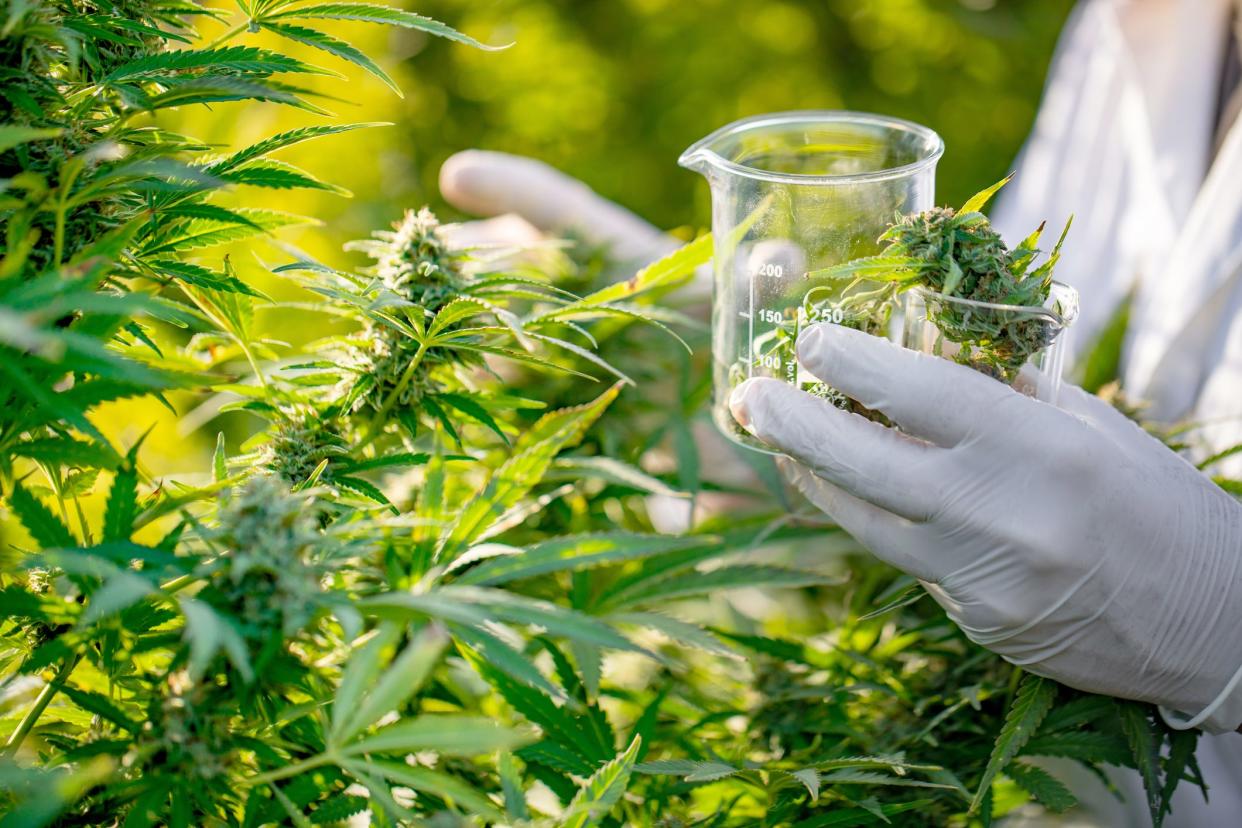Guests: Oklahomans should consider latest marijuana research ahead of SQ 820

The way people in the United States view and use cannabis has changed greatly in the past 20 years. On March 7, Oklahoma will vote on State Question 820, which could make recreational cannabis use legal. To make an informed decision, it's important to understand the latest research on cannabis. Some scientists at the Laureate Institute for Brain Research have been studying substance use for a long time, and they aim to share their latest findings with the public, especially those that relate to mental health.
More:Guest: SQ 820 is 'like a Ponzi scheme' that will leave Oklahoma families to pick up pieces
Cannabis legalization outcomes
Cannabis is a plant that has many chemical compounds, including cannabinoids. The two most famous cannabinoids are THC, which causes the feeling of being high, and CBD, which has been studied for its medicinal properties but does not cause a high. Since the legalization of recreational cannabis in the United States, researchers have noted an average increase of 20% in its use. Legalization also has led to a decrease in the price of cannabis, a rise in the strength of products available, greater accessibility for adult users, and an increase in hospitalizations and emergency room visits related to cannabis use. Despite these consequences of cannabis legalization, we are still in the early stages of learning through research about the potential medical uses of cannabis.
Medical uses of cannabis ― what have we learned?
Medical research on cannabis has been limited in the past, however, recent studies have provided new insights into the potential medicinal properties of cannabis. Some of these findings include:
A study of people with chronic pain showed a small, but not statistically significant, improvement in pain after inhaling cannabinoids.
A study of people with chronic pain showed no statistically significant reduction in pain after using vaporized cannabis compared to a placebo.
Studies of people with rheumatoid arthritis showed slightly reduced disease activity with the use of cannabis, but little to no reduction in pain and increased dizziness, lightheadedness, drowsiness and headache.
A study of people receiving chemotherapy for cancer showed less nausea and vomiting with the use of a combination of THC and CBD, but also increased sedation, dizziness and disorientation.
Two studies of people with psychiatric disorders showed little to no benefit from using cannabinoids, such as no significant reduction in disruptive behavior for people with autism spectrum disorder and no reduction in PTSD-related symptoms. Overall, there is limited evidence to support the use of cannabinoids as standalone medications for medical or mental health conditions.
More:Guest: March 7 vote isn't between more weed or less weed. It's about limiting government control
Consequences of cannabis use ― and its effects on the brain
The use of cannabinoids, found in cannabis, has been linked to various physical and mental health issues. Here are a few examples:
Driving under the influence of cannabis can impair driving performance, though users may not realize it.
Short-term cannabis use can lead to memory and balance problems, even in frequent users.
A study in Denmark showed cannabis use disorder can increase the proportion of cases of schizophrenia by 4% over a 10-year period.
Using cannabis during ages 14 to 19 years has been linked to a decrease in brain thickness in areas that are important for critical thinking and planning.
The legalization of cannabis has increased the risk of developing cannabis use disorder among adolescent users and increased the frequency of use and cannabis use disorder among adults.
Adolescent cannabis consumption has been linked to an increased risk of developing depression and suicidal behavior later in life, even in individuals with no previous mental health conditions.
The use of high-potency cannabis has been linked to an increase in the frequency of use, memory problems and anxiety disorder.
Prenatal cannabis exposure and its related factors are associated with an increased risk of depression, anxiety, concentration and social problems in children at ages 9 to 10 years old.
The bottom line
Cannabis contains potent chemicals that can have both immediate and long-lasting impacts on the brain's natural cannabis system, potentially leading to negative outcomes. Current evidence supporting the positive effects of cannabis on mental health or medical conditions is limited or nonexistent.
Cannabis use can result in significant public health costs, both from direct consequences of intoxication or long-term use and from an increase in the prevalence of mental health conditions and the burden they place on the health care system. The availability of cannabis may result in higher use among youths, potential use during pregnancy, and extended use with adverse long-term effects.
When considering State Question 820, it is important to make an informed decision based on reliable and trustworthy information.
Dr. Martin P. Paulus is scientific director and president of the Laureate Institute for Brain Research (LIBR), a clinical neuroscience research institute based in Tulsa. Dr. Sahib S. Khalsa is director of clinical operations and LIBR director at the LIBR Float Clinic and Research Center. Dr. Salvador Guinjoan is principal investigator of the LIBR.



For more takes on State Question 820 vote ...
More:Point: As a grandma, I think recreational marijuana is good for Oklahoma
More:Counterpoint: Why you should vote 'no' on Oklahoma State Question 820
This article originally appeared on Oklahoman: Doctors: What Oklahomans should consider before voting on SQ 820

